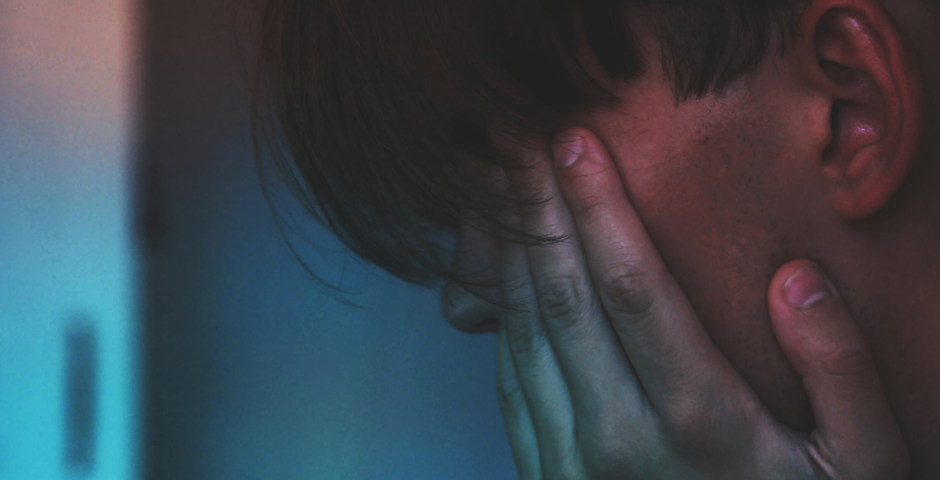
‘It’s easy to feel isolated after coming out’: How to cope with LGBTQ+ loneliness
‘Your LGBTQ+ identity is something to be celebrated and there’s a community who wants to support you’
Niamh felt as though she had exposed her darkest secret when she came out as queer. Despite not feeling like she was ready, Niamh forced herself to come out which threw her into deep feelings of isolation.
Like over half of LGBTQ+ young people in the UK, Niamh fell into feelings of loneliness and felt very vulnerable. She says she isolated herself after coming out which left her overwhelmed by her own emotions about people potentially seeing her differently, asking her questions and making presumptions about her future that she hadn’t necessarily stopped to think about herself yet.
The Chief Executive of Just Like Us, an LGBTQ+ young people’s charity, spoke to The Tab about queer young people feeling lonely and said this was something that was really apparent during lockdowns. Research conducted by Just Like Us revealed 52 per cent of LGBTQ+ young people in the UK feel lonely on a daily basis.

Niamh
Dr Earim Chaudry, a Medical Director from Manual, exclusively spoke to The Tab about how LGBTQ+ loneliness takes its toll one people both mentally and physically. He said: “If an individual has just come out, it can be so easy for them to feel isolated and miss the days when their sexuality wasn’t the centre of everyone’s attention.” Niamh is very familiar with this, she told The Tab she shut herself away in isolation which ultimately contributed to her escalating feelings of loneliness. However now she’s out the other side and she says something which helped her get through the dark time was listening to podcasts on queer stories. She says learning about different people’s experiences gave her the confidence to do it in her own time.
Glasgow found themselves having to come out twice, once as queer then non-binary. They said their experience of coming out twice was lonely and they often felt misunderstood and were judged by people who haven’t taken the time to educate themselves on what Glasgow’s identity means. Glasgow told The Tab: “We are, sadly, living in a society which more often than not amplifies heterosexual perceptions of the community over the lived experiences of LGBTQ+ people, and that can be confusing when we are made to feel like our lives are not controlled by us.”

Glasgow
They said that anyone starting their own journey should try to remember there is literally no need to define themselves. Glasgow said to The Tab: “You are free to love whomever you love and there will always be people out there who value that part of you. You are entitled to redefine yourself at any time. You will continue to grow, change and add value to the lives of others.” They continued to say how someone’s LGBTQ+ identity is something to be celebrated when they’re ready to and that there will always be a community who wants to support them through this.
NHS Clinical Director and Medical Director, Dr Earim Chaudry, offers his advice on methods someone can take to help distract themselves from feelings of loneliness. He said: “Joining clubs or sporting groups can particularly be beneficial for those who suffer from mental health issues. Attending these groups is a great way to meet people meet regularly and make friends with individuals you can see on a regular basis.” Dr Chaudry also says LGBTQ+ people experiencing feelings of loneliness should try to avoid relying on forming relationships with people they meet on a night out and try to focus on creating more deep and genuine connections.
If someone is like Glasgow, and not met with the best response to coming out, Dr Chaudry says to try and focus on the things that will make you happy. Dr Chaudry said: “This could be anything from picking up that hobby or activity you’ve been putting off, or immersing yourself in music and the arts – which can be a safe space for conveying personal experiences such as loneliness”.
The Tab’s LGBTQ+ history month reporting series is putting a focus on highlighting LGBTQ+ issues and celebrating queer voices across UK campuses.
If you or someone you know has been affected by this story you can contact Switchboard, the LGBTQ+ helpline, on 0300 330 0630 or visit their website. You can also find help through young people’s charity The Mix, and Galop, the LGBTQ+ anti-violence charity.
If you’ve got a story you’d like to tell us – whether it’s an incident of homophobia on campus, an experience you’d like to share, or anything you think we should hear, get in touch in confidence by emailing georgia@thetab.com.





















